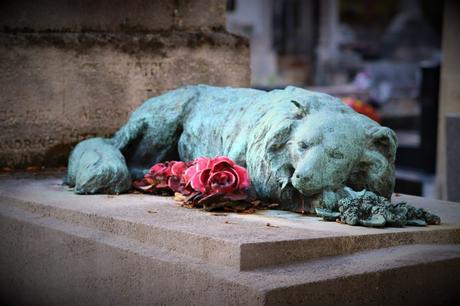
As a parent you have a strong instinct to protect your children. When emotional tragedies occur, such as the death of the family dog, it can be difficult trying to help your children. Depending on the age of your child, they may not know what the concept of death even is. Your child may react with strong feelings of grief and confusion. Every single person reacts to tragedy and grief differently, however, as a parent you are responsible for helping your child make sense of everything while also teaching them the appropriate way to process emotions. This life skill is so important for your child's development and emotional growth. You can encourage this growth by being well-informed on how to help your children deal with grief.
- Be Open With Your Children
The emotional development of your children begins with you. Children model their behavior based on what they see their parents doing. Since children take cues from their parents it is important to openly express grief in the wake of a tragedy. Sometimes parents make the mistake of trying to be strong for their children by hiding their feelings of grief. Especially when the children are also grieving the loss, it is helpful for them to see how adults process those same feelings. When parents hide their feelings while the kids are grieving too, it implants an incorrect understanding that they should also act unaffected by the death. By being open you are also providing a great model for kids to use later on in life when they inevitably face tragedy again. By exhibiting a healthy reaction to the passing of a pet, you are equipping your children with a more effective coping mechanism for dealing with tragedy.
Upon telling your children about the death of a pet you should always have a brief plan of how you may respond to them. Since everyone expresses grief differently you can never be 100% certain how your son or daughter might react which is why giving your children a creative outlet is very effective. Licensed Therapist and Grief Counselor Kathryn Desantis recommends giving children, especially children under 6, paper and crayons so that they can express how they feel through drawing and coloring.
Another good way to keep your children occupied in the days and weeks following the death of a beloved family pet is to keep them enrolled in the activities that they are use to. For example, if your son has soccer practice 3 times per week, it will be a good idea to not skip these practices. The more you deviate from your normal routine after the death of a pet, the harder it is to get back on track. Mourning the death is an important part of the grieving process, however, you cannot let it consume you entirely. When you discontinue your normal routine, and completely change your day to day activities, it can make your children feel further alienated from the life they had been living prior to the death of their pet.
- Get Your Children Involved In the Funeral
Children want to feel like they are a part of things. By having your children participate in the funeral of a pet, you are giving them a means to express their emotions within a suitable context. When children (or anybody person for that matter) get directly involved in the memorial service, it provides a great opportunity to find some closure to the tragedy. There are so many different ways that you can have your kids get involved in the funeral of a pet including:
- Writing a note to bury/cremate with the pet
- Choosing the cremation urn for a pet
- Finding a spot to scatter the ashes/bury the pet
- Writing a eulogy
- Creating a scrapbook of the pet
By being open with your child and by giving them outlets to express themselves, you are laying the groundwork for them to grow from an emotionally tragic situation. Tragedy is never easy to overcome, but hopefully by following these tips you can ease your children's grief while watching them develop. For more information on unique memorial ideas and dealing with grief, please check out the SPU blog!
Image: Pixabay
Comments
comments

